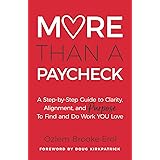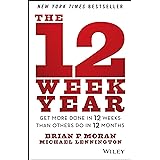As Bharati highlights in the video above, successful BPO interview preparation is crucial for anyone looking to enter the dynamic world of Business Process Outsourcing. Facing a BPO interview can feel daunting, but with the right strategy and understanding, you can significantly boost your chances of success. This guide expands on the foundational tips provided, offering a deeper dive into what it takes to excel.
The BPO sector is a significant employer globally, especially in regions like India. It offers diverse roles, from customer service to technical support and back-office operations. Understanding the industry and preparing effectively are your first steps toward a rewarding career.
Understanding Business Process Outsourcing (BPO) Roles
Before diving into interview strategies, it’s vital to grasp what BPO truly entails. Business Process Outsourcing is when a company contracts out specific business functions to a third-party service provider. This can range from front-office tasks like customer support to back-office functions such as data entry, payroll, or IT services.
Each BPO role demands a unique set of skills, but a common thread runs through all of them: the need for efficient, client-focused, and professional service. Recognizing this will help you tailor your responses during your BPO interview preparation.
Common BPO Service Areas
- Customer Service: Involves handling customer queries, complaints, and providing information via phone, email, or chat.
- Technical Support: Assists customers with technical issues related to products or services.
- Data Entry & Processing: Deals with inputting, verifying, and managing large volumes of data.
- Telemarketing & Sales: Focuses on generating leads, making sales, or conducting market research.
- Finance & Accounting: Handles tasks like bookkeeping, payroll processing, and invoice management.
Mastering Essential BPO Interview Skills
Bharati emphasized several core areas for successful BPO interview preparation. Let’s elaborate on each, providing concrete ways to demonstrate these qualities.
Dress Professionally
Your appearance makes a significant first impression. Professional attire conveys respect for the interviewer and the company.
For men, this typically means a collared shirt, well-fitted trousers, and polished shoes. A tie might be appropriate for more formal settings. For women, a business formal or business casual outfit such as a saree, a pantsuit, a formal skirt and blouse, or a formal dress is suitable. Always ensure your clothes are clean, ironed, and conservative. Avoid overly casual wear like t-shirts, jeans, or flashy accessories.
Be Confident
Confidence is about believing in your abilities and showing it through your demeanor. It doesn’t mean being arrogant, but rather poised and assured.
Maintain good eye contact throughout the interview, but don’t stare. Sit up straight, with your shoulders back. Speak clearly and concisely. Practice your answers aloud beforehand to build fluency and reduce nervousness. A firm handshake (if appropriate) also communicates self-assurance.
Communicate Clearly
Effective communication is perhaps the most critical skill for a BPO role. You need to convey your thoughts coherently and understand others.
Focus on articulate speech, using appropriate vocabulary and correct grammar. Speak at a moderate pace, avoiding mumbling or rushing. If English is not your first language, practice accent neutralization and focus on clarity. When answering questions, get straight to the point but provide enough detail to fully address the query.
Be an Active Listener
Active listening means fully concentrating on what the interviewer is saying, rather than just waiting for your turn to speak. This skill is vital in BPO roles, especially in customer-facing positions.
Show that you’re listening by nodding, making eye contact, and offering verbal affirmations like “I understand.” You can also paraphrase what the interviewer said to confirm your understanding before providing your answer. Asking relevant follow-up questions demonstrates engagement and critical thinking.
Highlighting Key Skills for BPO Success
Beyond the fundamental interview tips, Bharati highlighted specific skills that BPO companies value. These are not just buzzwords; they are practical capabilities that contribute directly to job performance.
Believe in Teamwork
Most BPO operations are team-based. You’ll work alongside colleagues to achieve departmental goals, solve problems, and ensure smooth operations.
During the interview, share examples of how you’ve collaborated with others. Discuss your ability to support teammates, contribute to group efforts, and resolve conflicts constructively. Highlight instances where your team achieved success due to collective effort.
Be Professional
Professionalism extends beyond just your dress code. It encompasses your attitude, work ethic, and ability to handle various situations gracefully.
Demonstrate punctuality, respect for company policies, and an ethical approach to work. Mention your commitment to maintaining confidentiality and handling sensitive information responsibly. Being professional also means staying calm under pressure and always aiming for a positive resolution.
Have Patience
Patience is a cornerstone skill, particularly in customer service and technical support roles. Dealing with challenging customers or complex issues requires a calm and persistent approach.
Provide examples of times you’ve had to exercise patience to resolve a difficult situation. Explain your method for de-escalating tense conversations or troubleshooting persistent problems. This shows your capacity to remain composed and focused on finding a solution.
Good Typing Skills (Process Dependent)
While not universally required, strong typing skills are a definite asset for many BPO roles, especially those involving data entry, chat support, or rapid documentation.
If the role demands it, mention your typing speed and accuracy. You might even be asked to take a typing test. Practice regularly to ensure you can meet the required words per minute (WPM) and maintain accuracy. This directly impacts efficiency in roles where quick data input is crucial.
Additional Crucial BPO Skills
To further enhance your BPO interview preparation, consider these additional skills:
- Adaptability: The BPO industry is fast-paced and constantly evolving. Show your willingness to learn new tools, processes, and handle changes.
- Problem-Solving: BPO roles often involve troubleshooting issues for clients. Describe your logical approach to identifying problems and finding effective solutions.
- Stress Management: These roles can be demanding. Talk about healthy coping mechanisms and your ability to maintain performance during high-pressure situations.
- Customer Focus: A genuine desire to help customers and ensure their satisfaction is paramount. Share experiences where you went above and beyond for a customer.
Navigating Common BPO Interview Questions
Your BPO interview preparation should also include anticipating common questions. Here’s how to approach a few examples:
"Tell me about yourself."
This is your elevator pitch. Focus on your relevant skills, experiences, and career aspirations that align with the BPO role. Keep it concise, highlighting your strongest selling points, such as communication skills or a customer-centric mindset.
"Why do you want to work in a BPO?"
Express genuine interest in the industry and the specific company. Mention your desire to develop professional skills, contribute to a team, and work in a dynamic environment. Research the company’s values or services and integrate them into your answer.
"What are your strengths and weaknesses?"
For strengths, choose qualities directly relevant to BPO, such as strong communication, problem-solving, or patience. For weaknesses, pick something minor that you are actively working to improve, demonstrating self-awareness and a commitment to growth.
"How do you handle pressure or difficult customers?"
Provide a STAR method (Situation, Task, Action, Result) example. Describe a specific time you faced pressure or a challenging customer. Detail the actions you took to manage the situation and the positive outcome you achieved.
"Where do you see yourself in 5 years?"
Show ambition and a desire for growth within the BPO sector. Discuss your interest in advancing to supervisory or specialized roles, or becoming an expert in your field. Align your aspirations with potential career paths within the company.
Thorough BPO interview preparation empowers you to walk into any interview feeling confident and capable. By understanding the industry, honing your skills, and preparing for common questions, you set yourself up for success.
Navigating Your BPO Interview: Your Questions Answered
What does BPO stand for?
BPO stands for Business Process Outsourcing. It’s when a company contracts out specific business functions to a third-party service provider.
What kinds of jobs can you find in the BPO industry?
The BPO industry offers diverse roles such as customer service, technical support, data entry, telemarketing, and tasks in finance and accounting.
What are some important skills for a BPO job interview?
Key skills to focus on for a BPO interview include clear communication, active listening, and confidence. Professionalism, patience, and teamwork are also highly valued.
Why is it important to prepare for a BPO job interview?
Preparing for a BPO job interview is crucial because it helps you understand the industry and significantly boosts your chances of success in securing a role.









